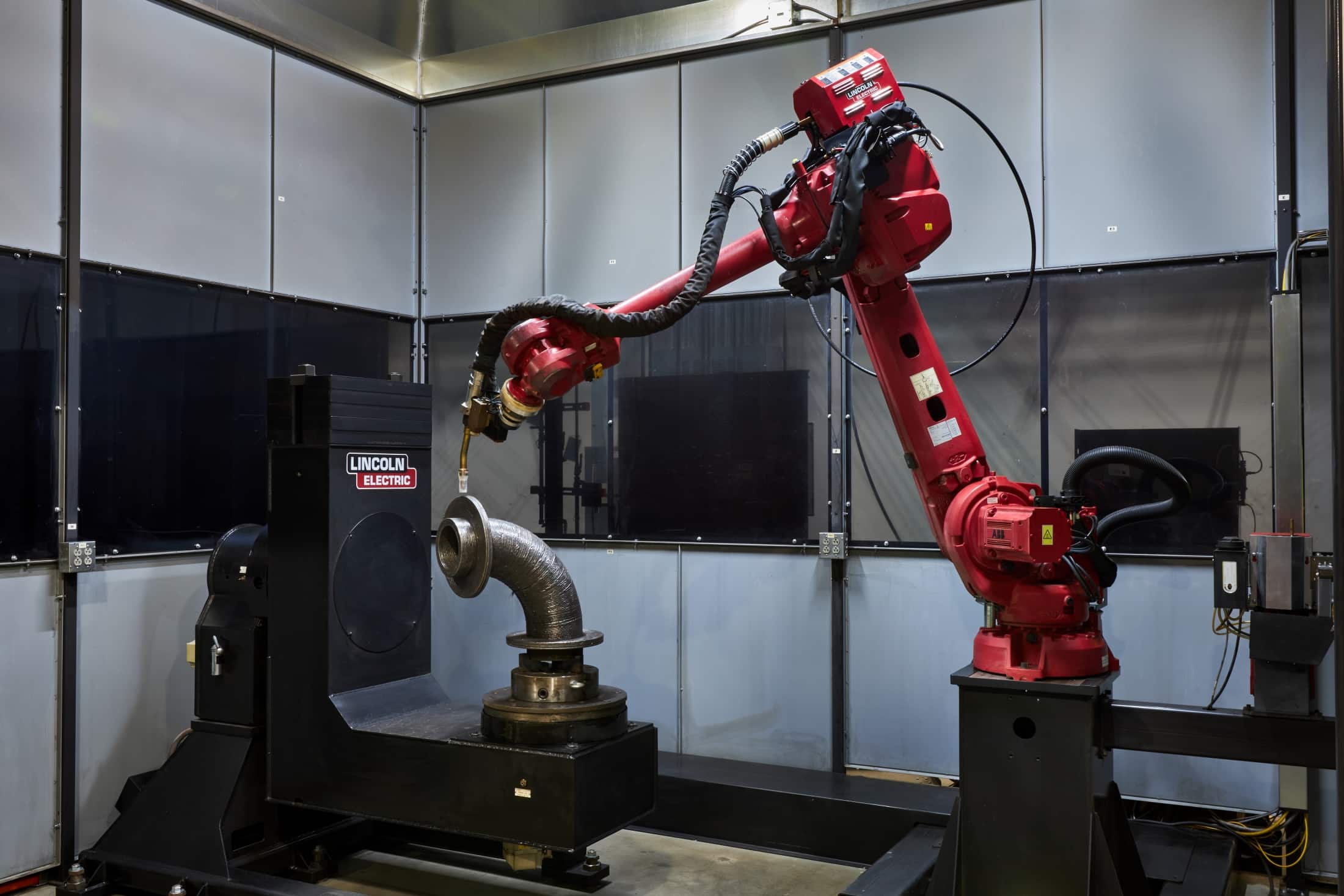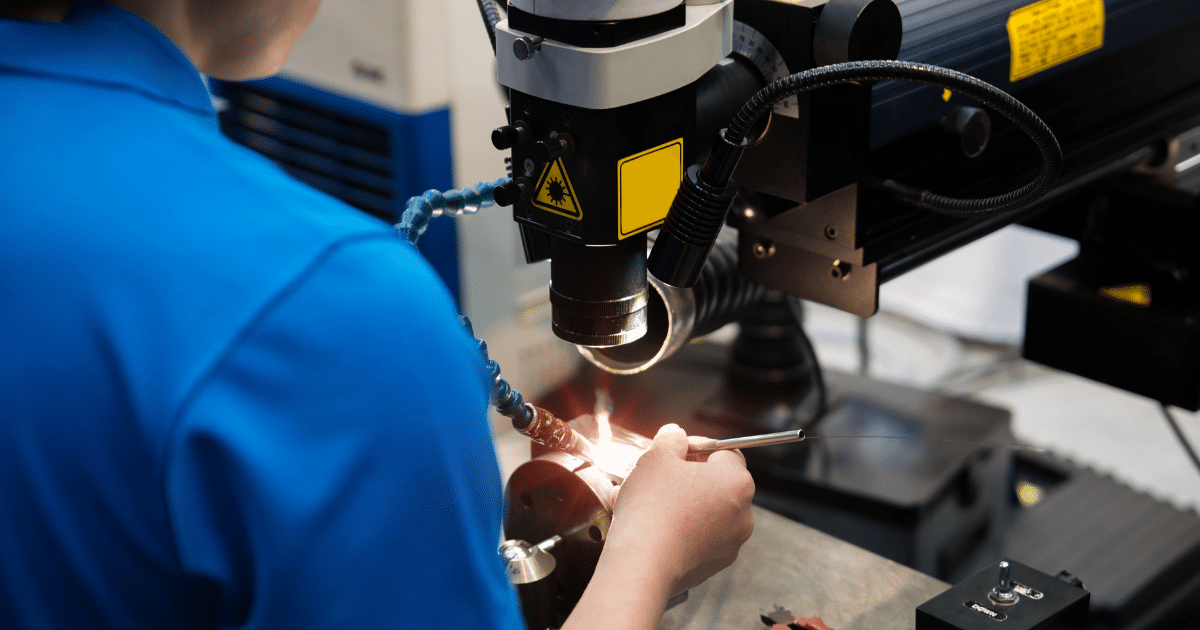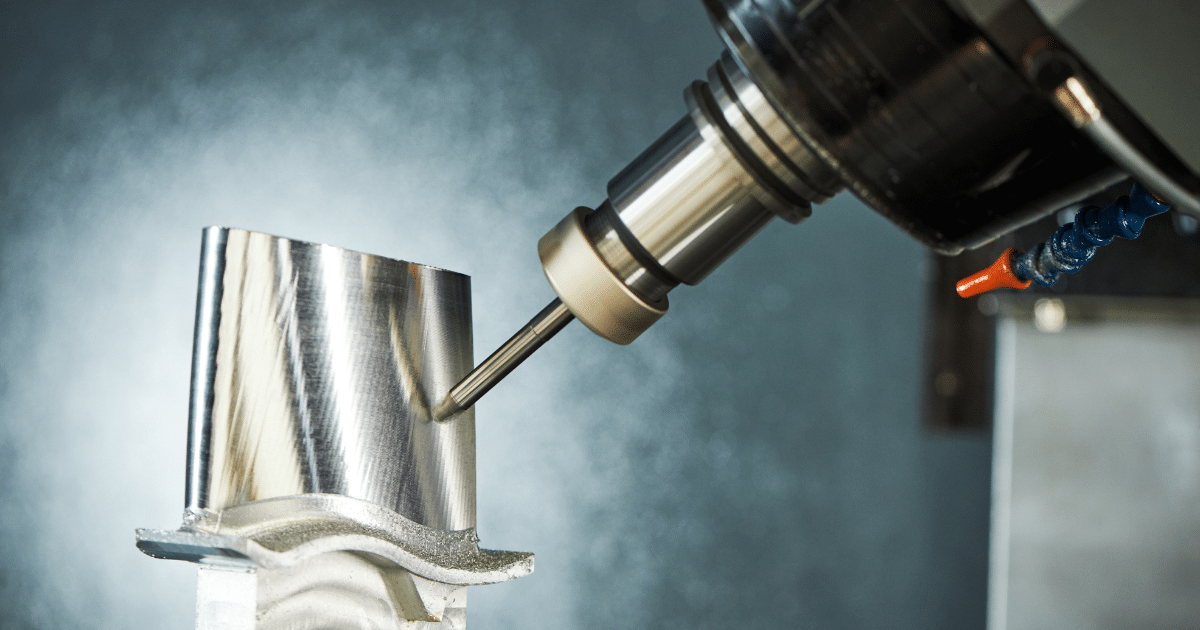Introduction to Outsourcing in Precision Manufacturing
For industrial manufacturers, outsourcing precision manufacturing has become a pivotal strategy for businesses looking to stay competitive and agile. This approach is reshaping how companies address modern production complexities and demands.
Our exploration into precision manufacturing outsourcing offers an insightful look into its growing importance, highlighting how it can serve as a key driver of efficiency, innovation, and growth in various industries.
Outsourcing in this context goes beyond the traditional concept of merely delegating tasks. It involves a strategic partnership with external experts and harnessing advanced technology to achieve greater production capabilities.
Chiefly, this article aims to provide a comprehensive overview, guiding businesses through the intricacies of outsourcing in precision manufacturing, from understanding its fundamental principles to navigating its advantages and challenges.
Defining Outsourcing in the Context of Precision Manufacturing
Outsourcing in precision manufacturing refers to delegating production processes or specific manufacturing tasks to external subcontractors.
When executed effectively, outsourcing enables manufacturing teams to harness the expertise and resources of specialized contract partners, enabling them to focus on core business activities while leveraging external capabilities for their production needs.
For precision engineering projects, outsourcing is not just about cost-cutting; it’s a strategic decision that taps into the global talent pool, accessing state-of-the-art technology, and scaling production in line with market demands.
Ultimately, outsourcing is more than just a tactic, its a strategic method for significantly enhancing your company’s agility and responsiveness to changing market trends.
Several key aspects of outsourcing are explained below:
Partnership with Specialized Manufacturers
Precision contract manufacturing often requires specialized knowledge and equipment. Outsourcing partners typically possess advanced technologies and specific expertise, making them well-equipped to handle complex manufacturing tasks.
Scalability and Flexibility
Outsourcing allows manufacturers to quickly adjust their production capacity based on demand, offering flexibility that can be challenging to achieve with in-house resources.
Focus on Core Competencies
By outsourcing certain manufacturing processes, companies can concentrate their efforts and resources on a larger program or areas where they excel, such as research and development and engineering.
Understanding these dynamics is crucial for businesses considering outsourcing as a manufacturing strategy. The following section explores the advantages of adopting this approach in precision manufacturing.
Advantages of Outsourcing Precision Manufacturing
Outsourcing precision manufacturing can be an excellent strategy to employ because it enables businesses to use external expertise and technology, often leading to improved operational efficiency and growth. Here’s a closer look at the advantages of embracing outsourcing in precision manufacturing:
Cost Efficiency
Capital and Operational Savings
Outsourcing can significantly reduce the financial burden of acquiring and maintaining high-end equipment. It often translates into lower operational costs, as it streamlines production processes and can reduce labor expenses, especially in high-wage regions.
Access to Expertise and Advanced Technology
Specialized Expertise
Outsourcing partners are usually highly specialized in certain manufacturing areas, with expertise in innovation and production quality.
Technological Advancements
Partnering with firms that leverage cutting-edge technology lets companies benefit from advanced manufacturing methods without directly investing in costly equipment.
Scalability and Flexibility
Responsive Scaling
Adjusting production volumes in response to market demands is a central outsourcing benefit, particularly valuable in industries subject to rapid fluctuations.
Market Adaptability
Finally, outsourcing offers the flexibility to swiftly adapt to market changes and seize new opportunities, thus maintaining a competitive market edge.
Accordingly, the combined effect of these advantages can create an environment that fosters innovation, operational efficiency, and growth. Outsourcing production can be a strategic and advantageous move for companies looking to expand and evolve in the fast-paced world of industrial manufacturing.
Challenges of Outsourcing Precision Manufacturing
While outsourcing in precision manufacturing has significant advantages, it’s essential to recognize and address the potential hurdles that come with it. Awareness of these issues is fundamental to developing effective strategies for a successful outsourcing partnership.
Quality Assurance Concerns
Ensuring consistent quality is a primary challenge in outsourcing. It’s crucial to manage these aspects effectively.
Maintaining Standards
Different outsourcing partners may have varying quality standards. Ensuring product consistency across different production sites can be challenging.
Quality Control Processes
Implementing stringent quality control processes and regular audits are necessary to maintain the desired level of product quality.
Managing Supplier Relationships
Effective management of supplier relationships is vital to the success of outsourcing:
Communication Barriers
Overcoming language and cultural barriers is essential for clear communication and understanding expectations.
Coordination and Timeliness
Coordinating with multiple suppliers, especially in different time zones, requires robust management for timely delivery and response to changes.
Dependency on Suppliers
Outsourcing introduces a level of dependency on external suppliers, which can present some risks:
Supply Chain Vulnerabilities
Disruptions in a supplier’s operations can significantly impact production schedules and deliveries. If your project has low margins for error, ensure that you choose a partner who is proven to be capable of the scope required to execute your project effectively.
Control Over Production
Outsourcing can lead to reduced control over aspects of your project’s production process, necessitating trust and transparency with suppliers.
Consequently, understanding and mitigating these challenges is crucial for a successful outsourcing venture. The next section explores how businesses can evaluate their outsourcing decision, confirming that it aligns with their manufacturing goals and business strategies.
Evaluating the Decision to Outsource Precision Manufacturing
Deciding whether to outsource in the field of precision manufacturing requires careful consideration. This evaluation is indispensable in determining if outsourcing aligns with your business goals and operational strategies.
Assessing Business Needs
Before deciding to outsource, it’s essential to assess your business’s specific needs thoroughly:
Internal Capabilities
Evaluate your current resources, skills, and technologies. Determine if they align with your manufacturing goals, especially for large-scale or complex projects.
Strategic Goals
Consider how outsourcing fits into your long-term business objectives. Will it help you focus on core competencies, innovate, or enter new markets?
Cost-Benefit Analysis
A detailed cost-benefit analysis is a critical part of the outsourcing decision-making process:
Financial Considerations
Weigh the immediate and long-term financial implications of outsourcing against maintaining in-house operations.
Value Addition
Beyond costs, consider the value that outsourcing can add in quality, speed to market, and access to advanced technologies.
This careful evaluation helps you better understand whether outsourcing suits your precision manufacturing needs. In the next section, we summarize the main takeaways with final thoughts on the role of outsourcing in modern manufacturing.
Conclusion
In exploring outsourcing for precision manufacturing, it’s clear that this strategy offers significant advantages and notable challenges. The key to successful outsourcing lies in carefully weighing these factors against your company’s needs and goals.
Additionally, outsourcing provides an opportunity to save costs, access specialized expertise, and enhance scalability. However, it also requires attention to quality assurance, effective supplier management, and strategic decision-making to mitigate dependency risks.
Finally, manufacturing and engineering teams considering outsourcing must undertake a thorough assessment, including a cost-benefit analysis and evaluation of internal capabilities versus external opportunities.
Outsourcing Precision Manufacturing Projects with Baker Industries
For those seeking experienced outsourcing partners, Baker Industries, a Lincoln Electric company, emerges as a knowledgeable and capable collaborator.
With our expertise in handling diverse manufacturing requirements and commitment to quality, Baker Industries stands ready to help navigate the complex landscape of precision outsourcing projects.
Whether you’re looking to streamline your manufacturing processes, tap into advanced technological capabilities, or manage production demands more effectively, outsourcing offers a pathway to achieving these objectives. Explore an inexhaustive list of capabilities offered at Baker Industries here.
In conclusion, by partnering with the right outsourcing provider, companies can unlock new levels of efficiency, innovation, and market competitiveness.
We invite you to advance your engineering capabilities by partnering with Baker Industries. We’ll work to ensure that every component of your upcoming precision manufacturing project is a benchmark of engineering excellence.
Contact us today with questions about an upcoming project or to request a quote.
Talk to an expert: https://www.bakerindustriesinc.com/contact-us/
Request a quote: https://www.bakerindustriesinc.com/contact-us/request-a-quote/


